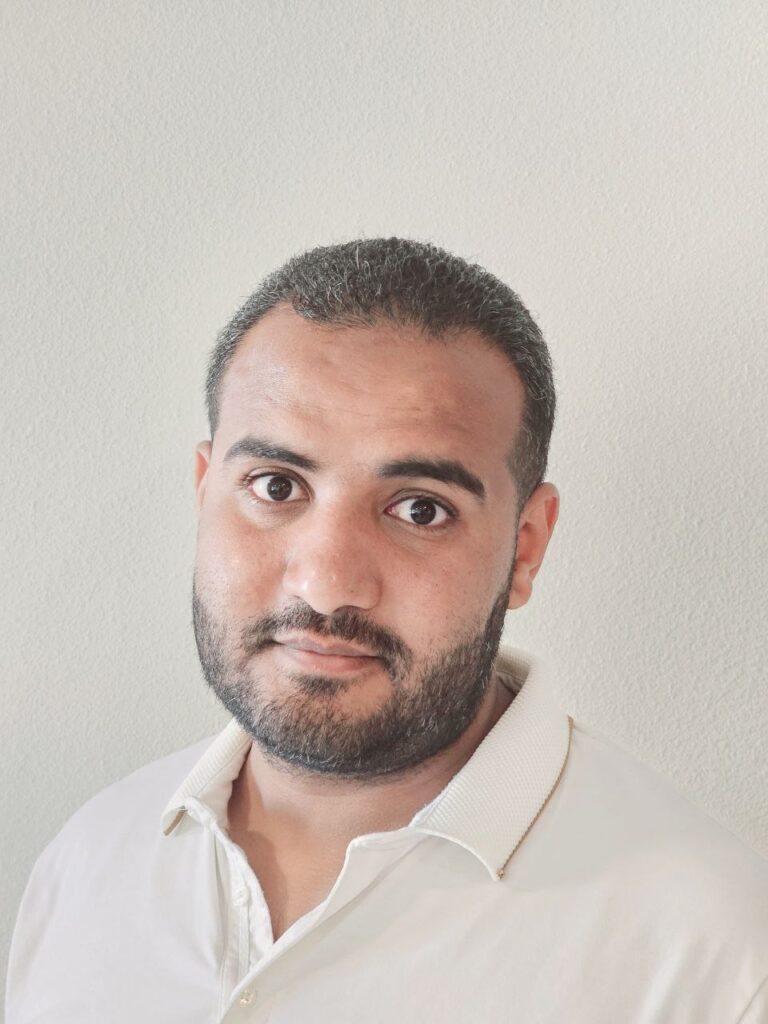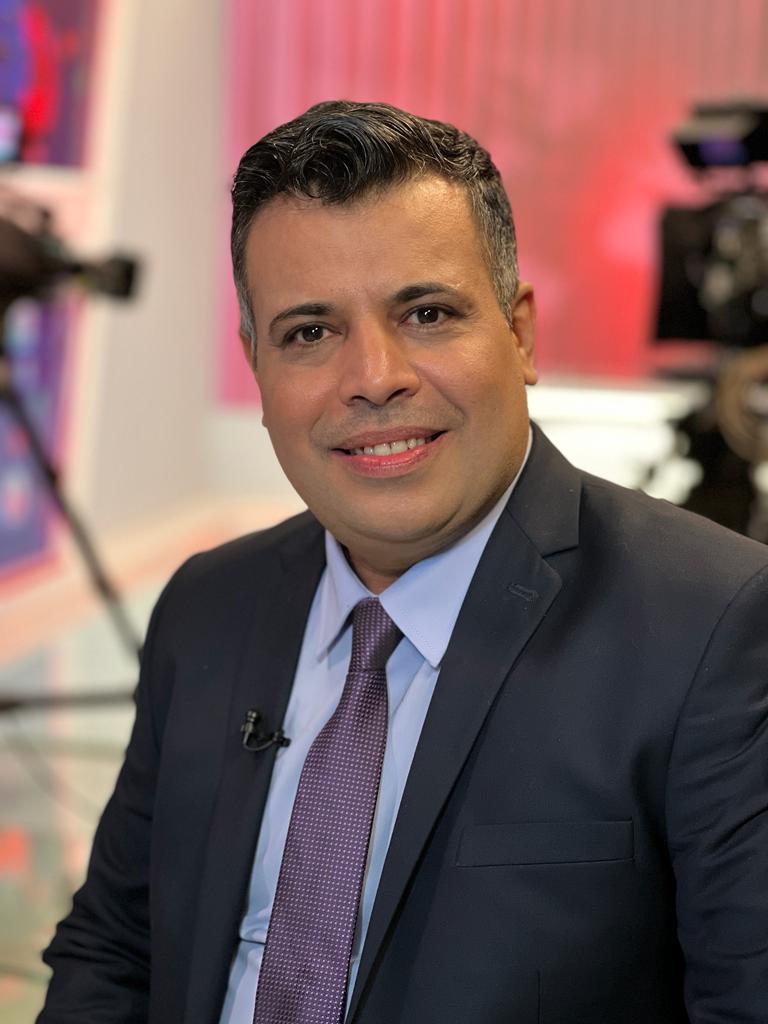by
Arafat Musleh
Despite the lurch and joggle of the car on the dirt road enveloping me in a strange sense of comfort, I found myself unable to rest my head against the windowpane. I turned to my mother, who was sitting to my right, staring absently into the void, while beside her, my brother Ayman, with weary eyes, resting his head on her shoulder. She held his hand with both of hers, as if she feared he might suddenly evaporate and vanish into thin air.
Ayman never leaves the house without me anymore, and I have come to feel a sense of importance, tinged at times with annoyance as the trips for his treatment become increasingly exhausting. Our village disappeared as if the mountains devoured it. The car entered the asphalt road, and the vibrations ceased, causing my stomach to contract. I detest traveling on flat roads, and with the first bend in the road, I felt a wave of dizziness wash over me. As soon as we reached the foot of “Nqayl Al-Rudmah,” my stomach spewed forth a lava of vomit. My mother released Ayman’s hand and tried to secure the black plastic bag for me to vomit in, but her efforts fell short.
The car continued on towards Yareem, our new destination for treatment, and during that time, I vomited repeatedly. I felt a surge of anger towards Ayman. When we arrived in Yareem, my mother asked several passers-by for directions to the “Al-Sharif” center, the new therapist we were seeking this time. We boarded a bus headed towards the city of Ibb. The flat fields beside the road in the “Kitab” area left me feeling drained. The verdant pages, undisturbed by the presence of mountains, unlike our village, looked so enchanting that I wished we had one of the few houses scattered along the road.
Before we reached Mount Samara, the bus came to a halt. We disembarked, and I looked at Ayman with pity at his weary form, clad in a grubby white garment. It was difficult to see my elder brother reduced to a mere ghost, plagued by dizziness. A surge of electricity coursed through my limbs as a dreadful thought crossed my mind: that God might soon decide to take him to join our late father. In a frenzy, I clung to his left hand. We made our way up a dirt road towards a house perched on the side of a mountain with soil of a reddish-purple hue, and beside it, a shop constructed of tinplate. Many people were coming in and out, accompanying their patients, waiting for the Sharif.
We crossed the threshold into a dimly lit hall. Someone directed us to leave Ayman in one of the rooms, assuring us that the Sheikh would soon come out to see him. However, upon noticing that our hands were empty, he chided us for failing to purchase a number of eggs. The shop next to the house only sold eggs. The processing equipment seemed located there. My mother and I hurriedly stepped outside, and thankfully, she had enough money to buy the eggs, in addition to the cost of our return fare.
We purchased two eggs and returned to find all the patients arranged in neat rows in the center of a vast room, with their families gathered around them, all squatting on the ground. My mother placed the eggs in Ayman’s hand, and then a man in a short robe with a pointed beard and a hooked nose entered the room, greeting everyone before addressing them briefly. He said that all healing is found in the Quran and that God never send any disease without also providing a cure for it. He emphasized that God is the ultimate healer and that there is no shield against His judgment.
The Sheikh instructed the patients to hold the eggs as he began to recite. Four men, the Sheikh’s assistants, entered the room, and the door closed shut. The room fell into an eerie silence, with the patients squatting and bowing their heads to the floor, as if their necks could no longer support them. The Sheikh continued to recite, and some of the patients began to fidget. As he raised his voice, a woman suddenly rose up, screaming and shaking violently. The Sheikh continued his recitation, and one of his assistants rushed to stabilize the woman. He repeated the verse several times whenever the woman screamed, and I cried, burying my head in my mother’s lap. She, too, was weeping, her eyes fixed on Ayman.
At the other end of the room, a man began to speak in a hoarse voice, and another of the Sheikh’s assistants rushed to quiet him. His eyes appeared sunken in their sockets. Other patients began to moan, while some remained silent and motionless, like Ayman. The sight was terrifying.
After finishing the recitation, the Sheikh was sweating profusely. He allowed the windows to be opened to let in some fresh air. The old man announced that patients who did not have cracked eggs should continue to visit him regularly. Everyone formed a line, and the Sheikh began to crack eggs into a bowl, studying the whites and speaking to the patients’ relatives while gesturing towards the whites.
When it was Ayman’s turn, the Sheikh cracked an unbroken egg into the bowl. He motioned for my mother to observe the circles formed in the egg white, declaring that this indicated witchcraft. My mother shook her head as tears streamed down her face.
The Sheikh then signaled for one of his assistants, and they exchanged words. He ordered us to follow him, and the aide informed us that Ayman would recover, Insha’Allah, after two sessions. He gave us two brown boxes and an ointment. Ayman was to drink from one of the boxes and mix the other with his bathing water twice a day. As for the ointment, it was to be applied only at sunrise and sunset on Thursdays, and a small amount should be placed under each ear.
We departed with a glimmer of hope for Ayman’s recovery, but my mother’s tears continued to fall. Ayman remained unresponsive since leaving the house, which troubled my mother greatly. After two weeks, Ayman refused to return to the Sheikh once his medication had run out. My mother regarded this as a positive sign, as she often did after visiting a witch. She insisted that he return by any means necessary. So we made our way back to the Sheikh, and this time, there were fewer holes and circles in the egg whites. My mother was overjoyed, and we left with renewed hope and a plethora of medicine. However, Ayman did not recover at that time.
Today, after twenty long years, with every jolt of the car over the snowdrifts on this bitter night, I remember her. I long to visit her distant grave, to tell her that Ayman has become a father to two children and has a beautiful family, while I wander the earth, searching for my mother. Perhaps she will lighten the darkness of my exile with her prayers or search the land for a cure for me.
Translated by
Hatem Al-Shamea




I totally trust that ur stories will reach to the whole world You are amazing and talented writer.🌹